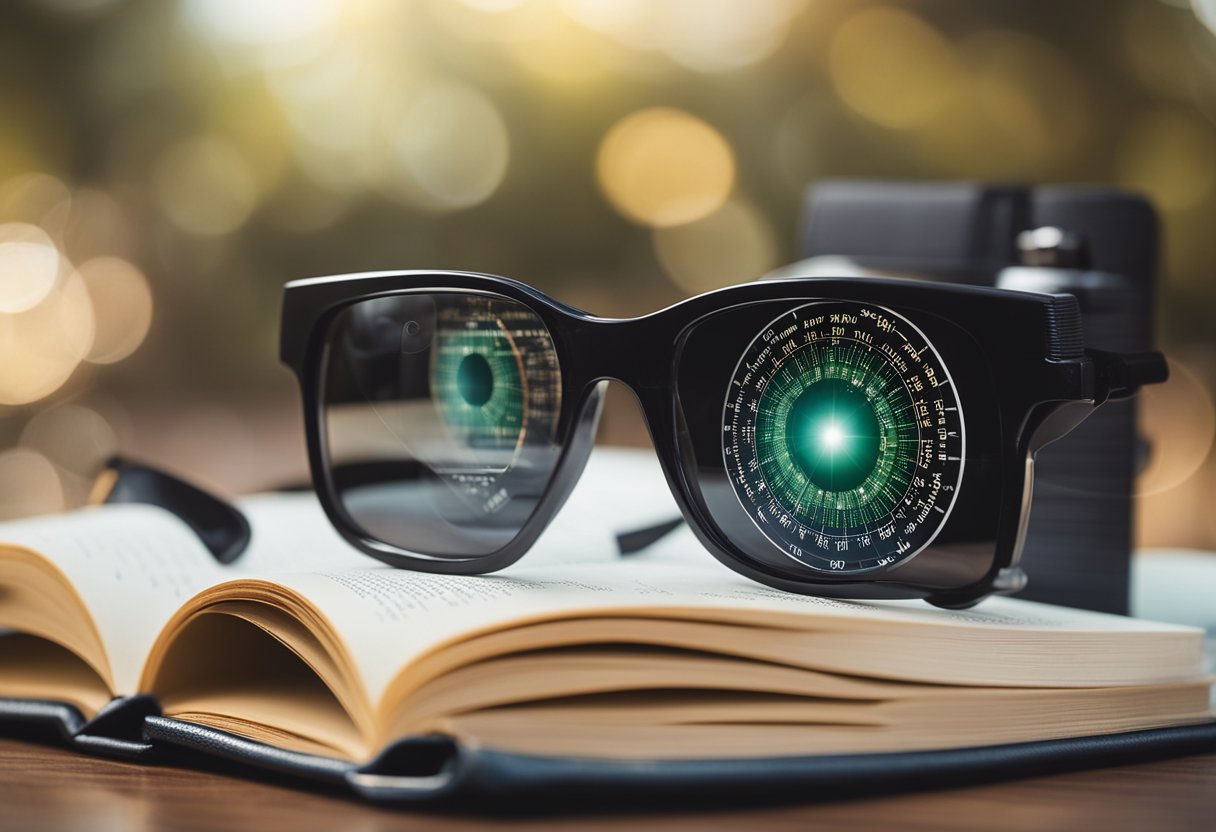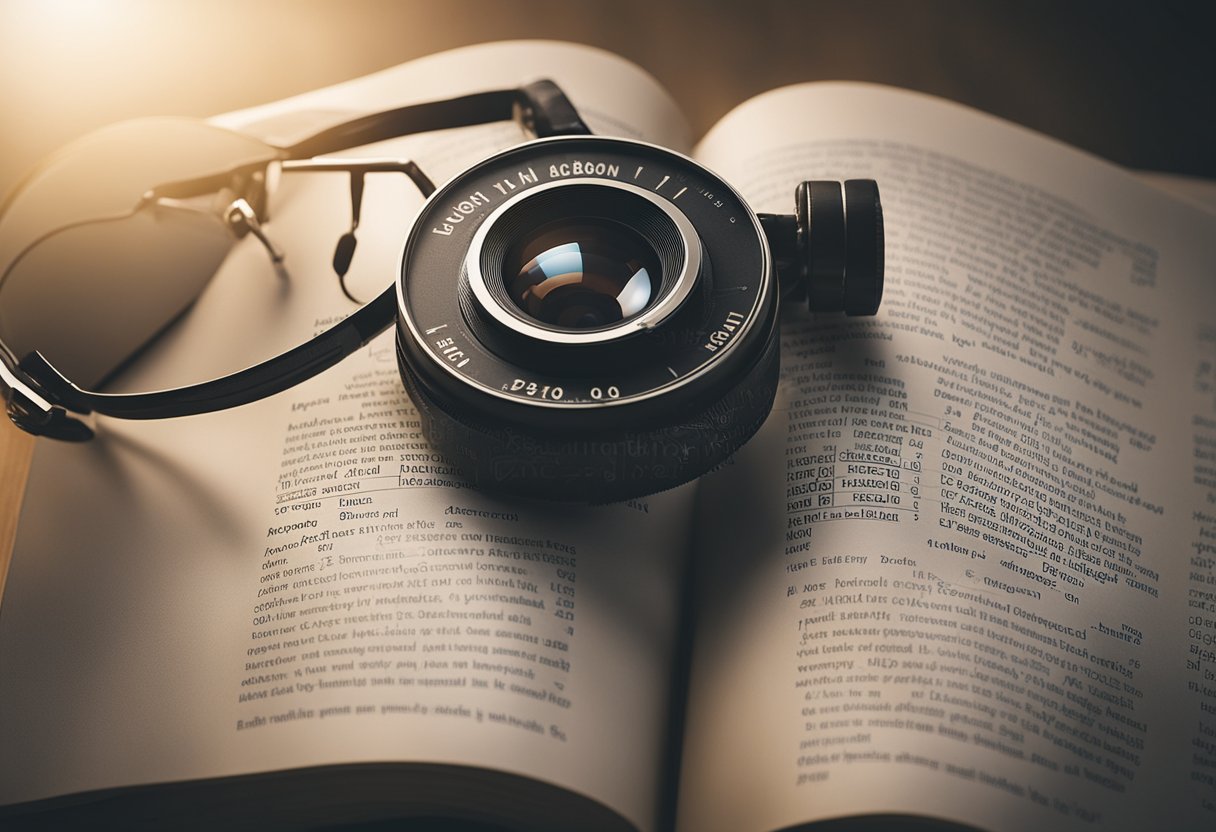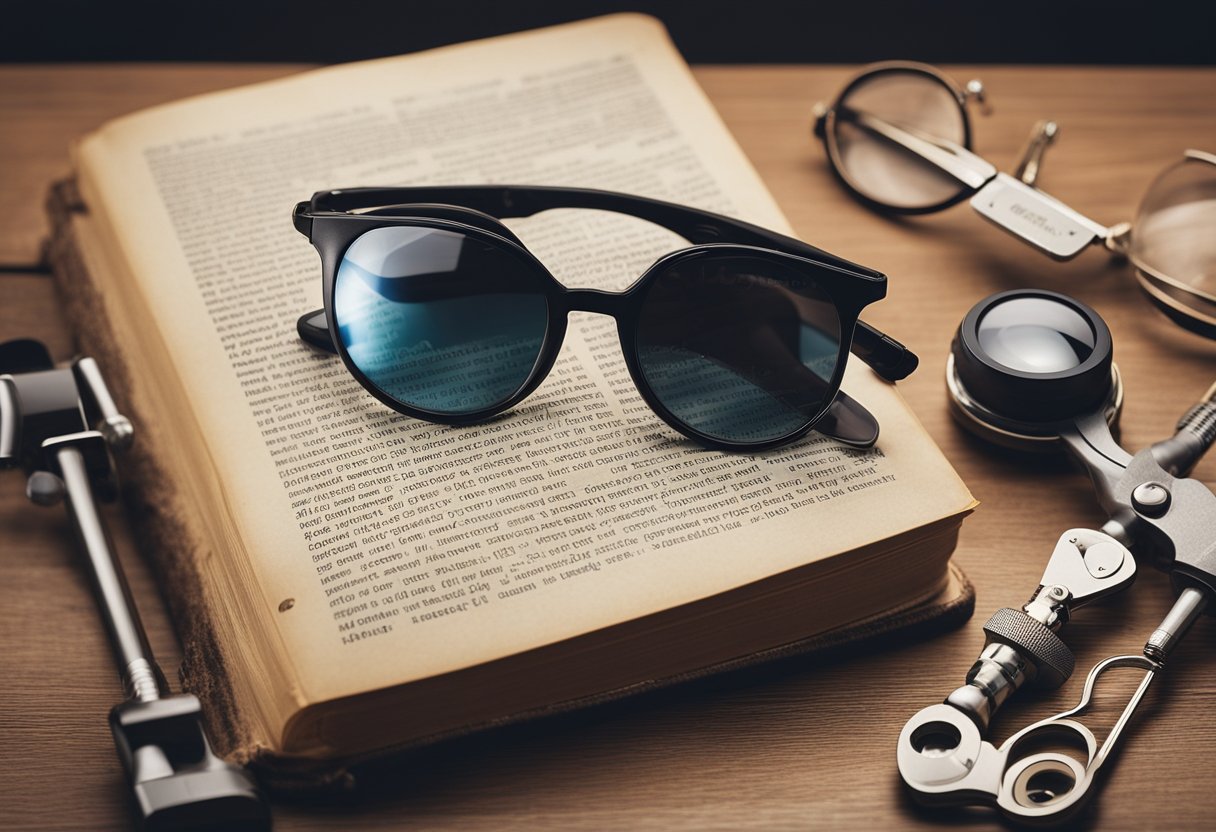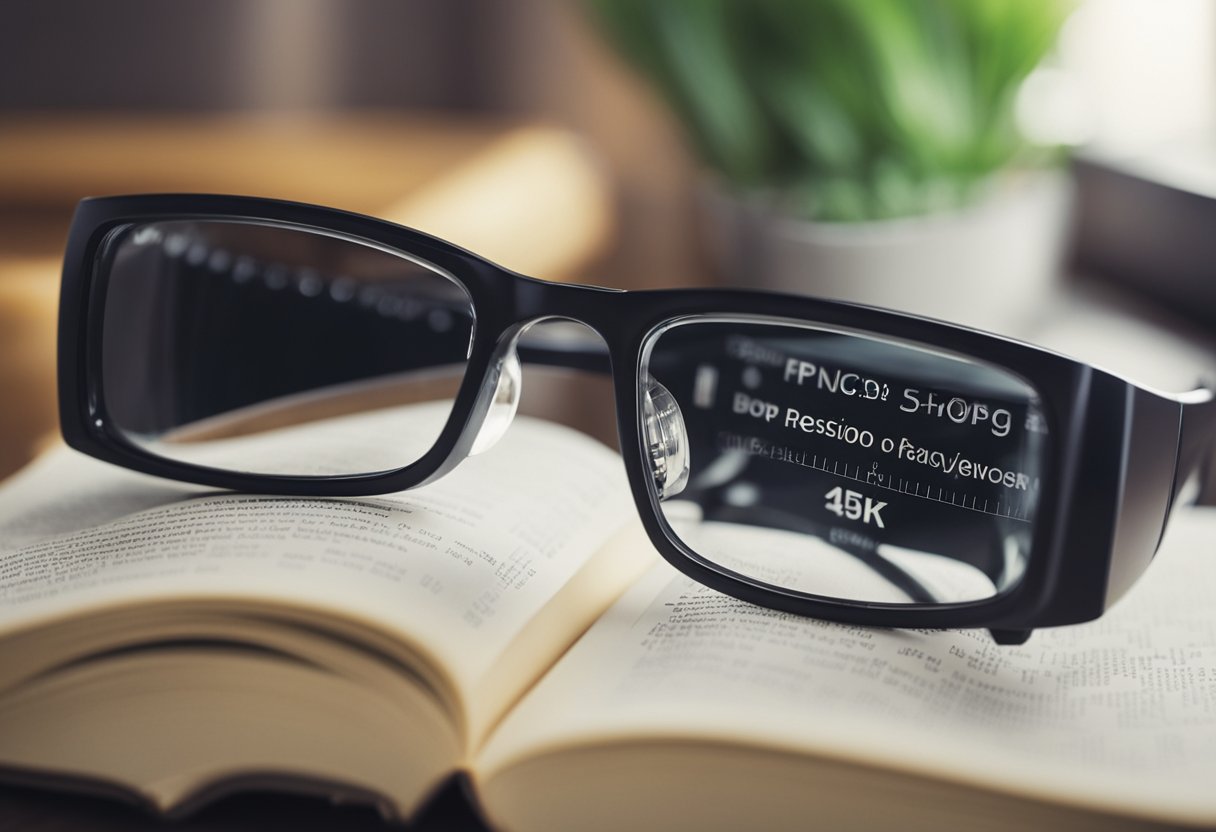If you or a loved one are experiencing age-related vision loss, you are not alone. Millions of people around the world experience some form of vision loss as they age. This can be a difficult and overwhelming experience, but there are many resources and strategies available to help you cope.

In this comprehensive guide, we will explore the various causes of age-related vision loss, as well as the different types of vision impairment that can occur. We will also provide practical tips and advice for managing your vision loss and maintaining your independence and quality of life. Whether you are just beginning to experience vision loss or have been living with it for some time, this guide will provide valuable information and support.
Understanding Age-Related Vision Loss

As you age, it is common to experience some changes in your vision. Age-related vision loss is a natural part of the aging process and affects many people. Understanding the causes and symptoms of age-related vision loss can help you cope with these changes.
Common Vision Problems in Aging
There are several common vision problems that occur with age. These include:
- Presbyopia: Difficulty focusing on close objects, such as reading material, due to a loss of elasticity in the lens of the eye.
- Cataracts: Clouding of the lens of the eye, which can cause blurry vision and sensitivity to light.
- Age-related macular degeneration: A degenerative disease that affects the macula, the part of the retina responsible for central vision.
- Glaucoma: A group of diseases that damage the optic nerve and can lead to vision loss.
Symptoms and Diagnosis
The symptoms of age-related vision loss can vary depending on the underlying condition. Some common symptoms include:
- Blurry or distorted vision
- Difficulty seeing in low light conditions
- Sensitivity to glare or bright light
- Loss of color vision
- Difficulty reading or recognizing faces
If you are experiencing any of these symptoms, it is important to see an eye doctor for a comprehensive eye exam. During the exam, the doctor will check your vision and look for any signs of age-related vision loss. They may also recommend additional tests, such as a visual field test or optical coherence tomography (OCT).
Remember, age-related vision loss is a natural part of the aging process. By understanding the common vision problems and symptoms associated with aging, you can take steps to manage and cope with any changes in your vision.
Coping Mechanisms

Dealing with age-related vision loss can be challenging, but there are ways to cope and adapt. Here are two coping mechanisms that can help you adjust to changes in your vision:
Adapting to Changes
Adjusting to changes in your vision can be difficult, but there are ways to make it easier. Here are some tips to help you adapt:
- Keep your home well-lit: Good lighting can make it easier to see and navigate your surroundings.
- Use contrasting colors: Contrasting colors can help you distinguish objects and make them easier to see.
- Use large print: Reading materials with larger fonts can make it easier to read.
- Use magnifiers: Magnifiers can help you see small print and details more clearly.
- Use audio books: Audio books can be a great alternative to reading if your vision is too impaired.
Using Assistive Devices
Assistive devices can help you perform daily tasks more easily. Here are some devices that can help:
- Magnifying glasses: Magnifying glasses can help you see small print and details more clearly.
- Screen readers: Screen readers can read text on your computer or phone screen out loud.
- Talking watches: Talking watches can tell you the time out loud.
- Braille devices: Braille devices can help you read and write in Braille.
By adapting to changes and using assistive devices, you can continue to live a fulfilling life despite age-related vision loss.
Mental Health and Vision Loss

Dealing with Age-Related Vision Loss can be emotionally challenging. It is common to feel overwhelmed, anxious, and depressed when you start to experience vision problems. Here are some ways to cope with the emotional impact of vision loss:
Dealing with Emotional Impact
- Acknowledge your feelings: It is important to recognize and accept your feelings. Give yourself time to grieve and process your emotions.
- Stay connected: Stay connected with friends and family. They can provide emotional support and help you stay positive.
- Stay active: Engage in activities that you enjoy. It can be anything from reading to gardening. Staying active can help you maintain a positive outlook.
- Join a support group: Joining a support group can be helpful. You can connect with others who are going through similar experiences and learn from their coping strategies.
Seeking Professional Help
If you are struggling to cope with the emotional impact of vision loss, it may be helpful to seek professional help. Here are some options:
- Counseling: A mental health professional can help you work through your emotions and develop coping strategies.
- Low Vision Rehabilitation: A low vision specialist can help you learn how to use your remaining vision effectively and recommend assistive devices that can make daily tasks easier.
- Medication: In some cases, medication may be prescribed to help manage symptoms of depression or anxiety.
Remember, it is important to take care of your mental health as well as your physical health. Coping with vision loss can be challenging, but with the right support, you can learn to adapt and maintain a positive outlook.
Maintaining Quality of Life

As you adjust to age-related vision loss, it’s important to maintain your quality of life. Here are some tips to help you stay active and build support networks.
Staying Active
Physical activity is important for your overall health and well-being. Even with vision loss, there are many ways to stay active. Consider the following:
- Walking: Walking is a great way to stay active. Use a cane or guide dog to help you navigate safely.
- Swimming: Swimming is a low-impact exercise that’s easy on your joints. Look for a pool with a guide rope or other markers to help you stay on track.
- Yoga: Yoga can help improve your balance and flexibility. Look for classes specifically designed for people with vision loss.
- Dancing: Dancing is a fun way to stay active. Look for classes that focus on partner dancing or line dancing.
Building Support Networks
Having a support network can help you cope with the challenges of vision loss. Consider the following:
- Join a support group: There are many support groups for people with vision loss. Joining a group can help you connect with others who are going through similar experiences.
- Talk to friends and family: Don’t be afraid to talk to your friends and family about your vision loss. They can offer emotional support and help you navigate daily tasks.
- Seek professional help: Consider talking to a counselor or therapist who specializes in vision loss. They can help you develop coping strategies and provide emotional support.
Remember, maintaining your quality of life is important. With the right support and resources, you can continue to live a fulfilling life despite vision loss.
Preventive Measures

There are several steps you can take to help prevent age-related vision loss and maintain healthy eyesight.
Regular Eye Check-Ups
One of the most important things you can do to prevent vision loss is to schedule regular eye exams. During these exams, your eye doctor can detect any changes in your vision and diagnose any potential issues early on. The American Optometric Association recommends that adults aged 18 to 64 have an eye exam every two years, while those aged 65 and older should have one every year.
Healthy Lifestyle Choices
Making healthy lifestyle choices can also help prevent vision loss. Here are some tips to keep in mind:
- Eat a healthy, balanced diet that includes plenty of fruits and vegetables. Foods rich in vitamins A, C, and E, as well as omega-3 fatty acids, can help protect your eyes.
- Quit smoking. Smoking has been linked to an increased risk of several eye conditions, including cataracts and age-related macular degeneration.
- Protect your eyes from the sun’s harmful UV rays by wearing sunglasses that block out 99% to 100% of both UVA and UVB radiation.
- Take breaks when using digital devices for extended periods of time. Looking at a screen for too long can cause eye strain and fatigue.
By taking these preventive measures, you can help maintain your eye health and reduce your risk of age-related vision loss.
Resources and Support

Dealing with age-related vision loss can be challenging, but there are resources and support available to help you cope. Here are some options to consider:
Community Resources
Your local community may have resources available to help those with vision loss. Here are a few to consider:
- Low Vision Clinics: These clinics specialize in helping people with low vision find solutions to help them function better in daily life. They can provide evaluations, training, and recommendations for assistive devices.
- Senior Centers: Many senior centers offer programs and services for those with vision loss, such as support groups, classes, and social activities.
- Transportation Services: If you are unable to drive, your community may have transportation services available to help you get around. Contact your local transit authority or senior center to find out what options are available.
Online Platforms
The internet can be a valuable resource for those with vision loss. Here are a few online platforms to consider:
- VisionAware.org: This website provides information and resources for those with vision loss, including tips for daily living, assistive technology recommendations, and a directory of organizations and services.
- American Foundation for the Blind: This organization provides resources and support for people with vision loss, including a directory of services, webinars, and a community forum.
- National Eye Institute: This website provides information about eye health and diseases, including age-related macular degeneration and cataracts.
Remember, you are not alone in dealing with vision loss. Reach out to your local community and online resources for support and assistance.
Rod Barnes
Rod Barnes has authored several websites with a wide variety of subjects.
He is a Vietnam Veteran with broad experience in business. He is especially interested in providing resources for our aging population.